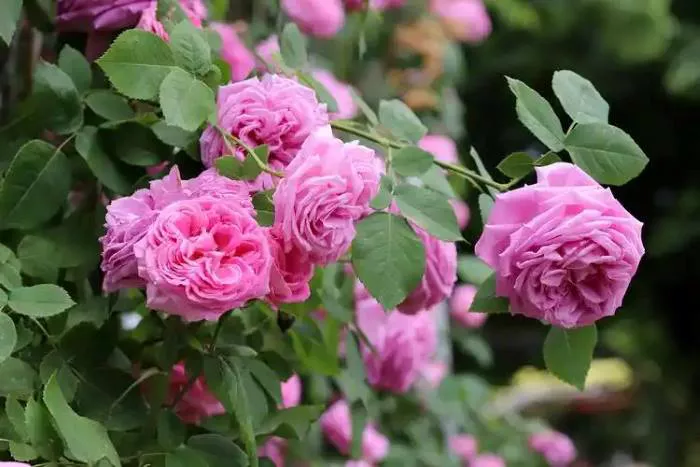Flowers are more than just beautiful objects in nature. They carry deep meanings and symbolize a wide range of emotions, concepts, and cultural beliefs. Understanding what flowers symbolize can enhance our appreciation of their beauty and significance in various contexts. This article explores the symbolism of flowers, examining their meanings in different cultures, occasions, and emotions.
The Language of Flowers
The symbolism of flowers is often referred to as the “language of flowers” or “floriography.” This language dates back centuries and has been used by different cultures to convey messages and sentiments without words. Each flower has its own unique meaning, which can vary based on color, type, and cultural context.
For example, red roses are widely recognized as symbols of love and passion, while white lilies often represent purity and innocence. Understanding these meanings allows individuals to choose flowers that convey the appropriate message for any occasion.
Common Flower Symbols
Different flowers hold specific meanings that can be grouped into common categories. Here are some of the most significant flowers and their widely recognized symbols.
Roses
Roses are perhaps the most well-known flowers in terms of symbolism. Their meanings can vary based on color. Red roses symbolize love and desire, making them a popular choice for romantic occasions. Pink roses represent admiration and gratitude, while yellow roses signify friendship and joy. White roses are often associated with purity and new beginnings, making them common in weddings and memorials.
Lilies
Lilies are elegant flowers that carry various meanings. White lilies symbolize purity and virtue, often used in religious ceremonies and weddings. Stargazer lilies represent prosperity and abundance, while orange lilies symbolize passion and enthusiasm. In some cultures, lilies are associated with death and are used in funerals to signify the restoration of the soul.
Tulips
Tulips are vibrant flowers that symbolize love and passion. Different colors of tulips carry unique meanings. Red tulips represent true love, while yellow tulips symbolize cheerful thoughts and sunshine. Purple tulips signify royalty and elegance, making them a popular choice for special occasions.
Sunflowers
Sunflowers are known for their bright and cheerful appearance. They symbolize adoration, loyalty, and longevity. Sunflowers are often associated with happiness and positivity, making them a popular choice for celebrations and gifts.
Daisies
Daisies are simple yet beautiful flowers that symbolize innocence and purity. They are often associated with childhood and new beginnings. In some cultures, daisies represent true love and are used in romantic contexts.
Orchids
Orchids are exotic flowers that symbolize beauty, strength, and luxury. They are often associated with love, refinement, and thoughtfulness. In some cultures, orchids are considered symbols of fertility and prosperity.
Carnations
Carnations are versatile flowers with rich symbolism. Red carnations symbolize admiration, while pink carnations represent a mother’s love. White carnations are often associated with purity and good luck. They are commonly used in celebrations and memorials.
Cultural Variations in Flower Symbolism
The meanings of flowers can vary significantly across different cultures. Understanding these variations is essential for appreciating the global significance of flowers.
Western Culture
In Western cultures, flowers are often used to express emotions during significant life events. For instance, red roses are commonly given on Valentine’s Day to express love, while white lilies are used in funerals to symbolize the purity of the deceased’s soul. Flowers play a crucial role in weddings, with various blooms chosen to convey specific sentiments.
Eastern Culture
In many Eastern cultures, flowers hold deep spiritual meanings. For example, in Chinese culture, peonies symbolize wealth and good fortune, while chrysanthemums represent longevity and fidelity. In Japan, cherry blossoms are celebrated for their beauty and are associated with the transient nature of life, reminding people to cherish each moment.
Middle Eastern Culture
In Middle Eastern cultures, flowers often have religious and symbolic meanings. The rose is a symbol of love and beauty in Persian poetry, while the jasmine flower represents purity and simplicity. Flowers are frequently used in religious ceremonies and celebrations, reflecting their cultural importance.
Flowers in Different Occasions
Flowers are commonly used in various occasions to convey specific sentiments. Their symbolism can enhance the meaning behind the gesture.
Weddings
Flowers play a central role in weddings, symbolizing love, beauty, and new beginnings. Brides often carry bouquets made of flowers that represent their feelings and hopes for the future. White flowers, such as roses and lilies, are popular choices for weddings, symbolizing purity and commitment.
Funerals
At funerals, flowers are used to express sympathy and honor the deceased. Different flowers carry specific meanings in this context. For example, white lilies symbolize the restoration of the soul, while chrysanthemums are often associated with death and are used in many cultures to honor those who have passed.
Celebrations
Flowers are commonly used in celebrations, such as birthdays, anniversaries, and holidays. They symbolize joy and happiness, enhancing the festive atmosphere. Brightly colored flowers, such as sunflowers and tulips, are often chosen for their cheerful meanings.
Sympathy and Apology
Flowers are frequently given as gestures of sympathy or apology. Sending flowers to someone who is grieving can convey compassion and support. In this context, soft-colored flowers, such as pastel roses and lilies, are often chosen for their gentle meanings.
Conclusion
Flowers carry profound meanings and symbolize a wide range of emotions, concepts, and cultural beliefs. Understanding what flowers symbolize enhances our appreciation of their beauty and significance in various contexts. From expressing love and admiration to honoring the deceased, flowers play a crucial role in human interactions.
The language of flowers transcends cultural boundaries, allowing individuals to convey sentiments that words may not fully capture. Whether used in celebrations, rituals, or everyday life, flowers continue to enrich our experiences and connect us to one another. By recognizing the symbolism behind different flowers, we can choose the right blooms for any occasion, making our gestures more meaningful and heartfelt.


